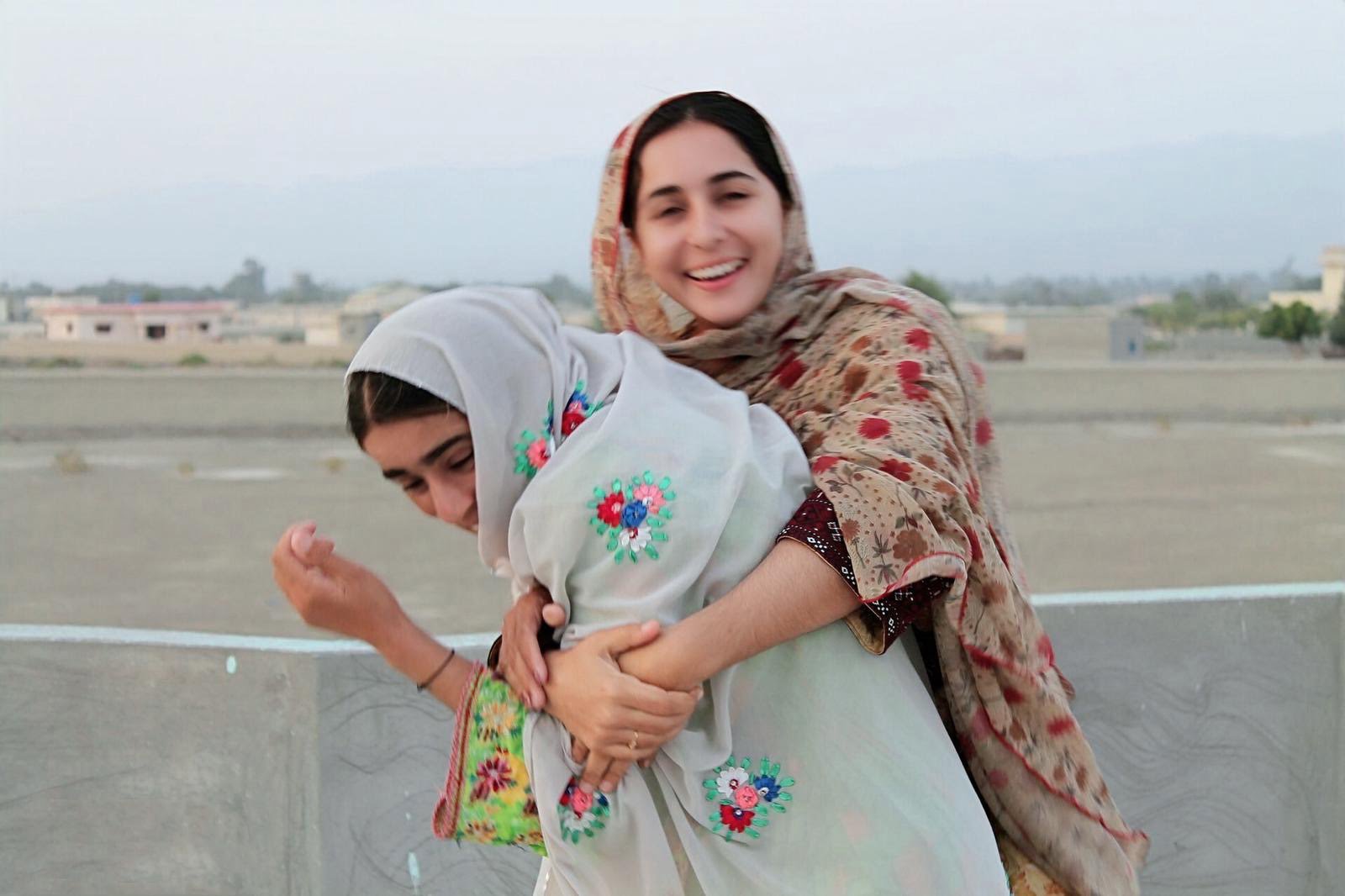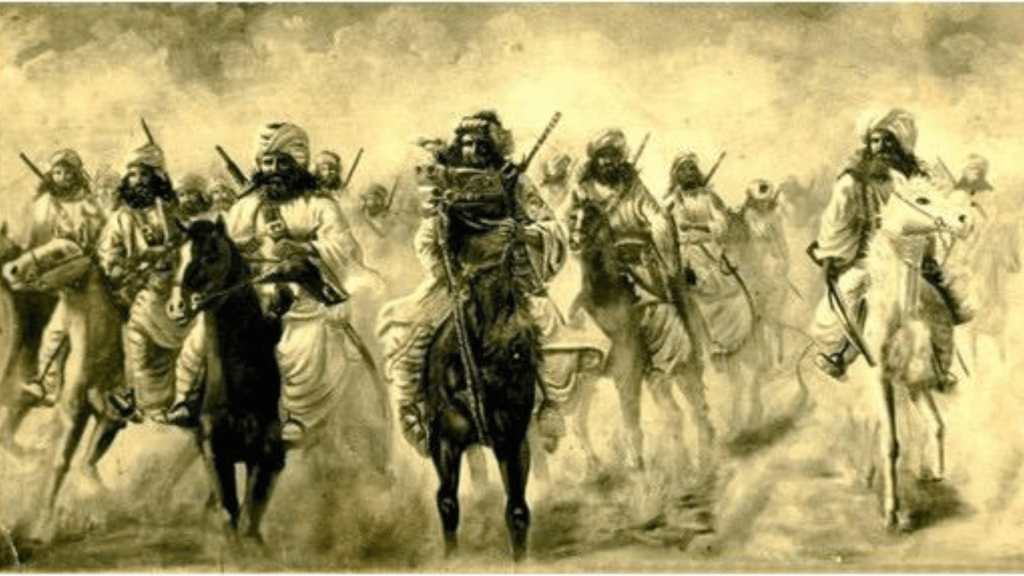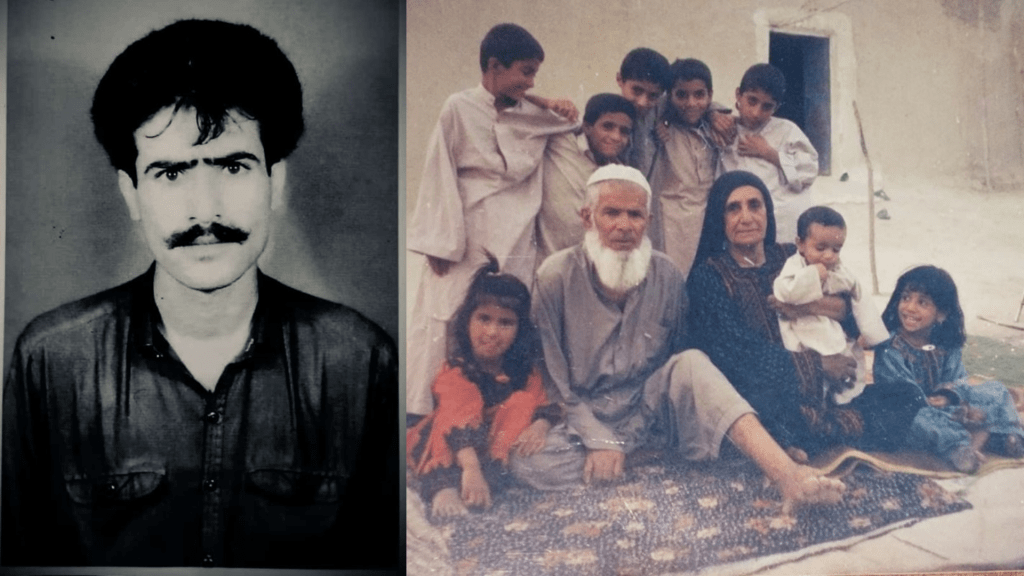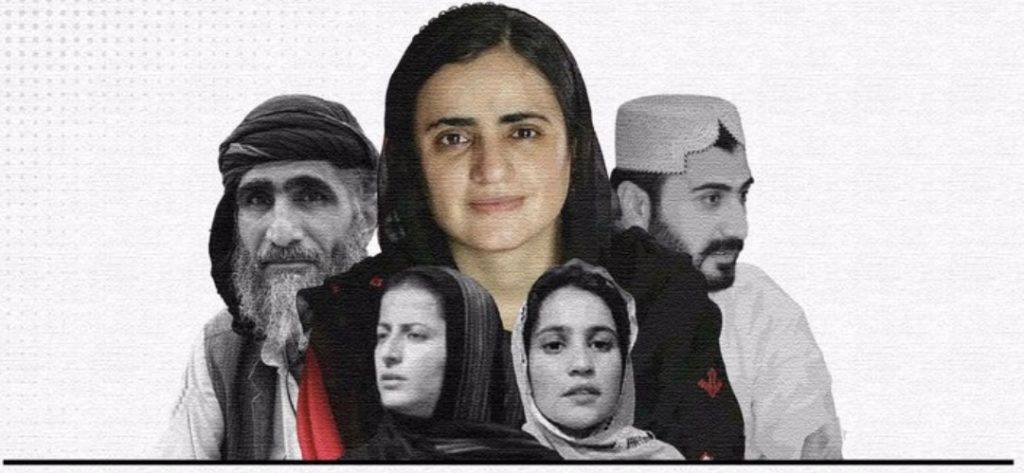Karima Baloch is a former chairperson of the Baloch Students Organization and one of BBC’s top 100 women in 2016. She lives as a political refugee in Canada.
We grew together, played together and shared the same toys that we had invented ourselves. We, the two girls, wandered around the Nihing river, the surrounding mountains and the woods. In the date harvest season, we both marched along with other village girls to the palm-grove to collect dates. We went to the same school, the same tuition and the same college.
In the dark summer nights, we slept under the same massive sky and stared at the Milky Way for hours.
We would fight often and stop talking for days. Then, suddenly, one morning, we wake up and began talking as if nothing had ever happened.
I usually helped her with her drawings and she helped me help fill my basket with dates.
We would often walk to a nearby village where our maternal aunts and cousins lived. To reach there, we had to walk through the old Nihing river. It was our favourite hobby. Even if a vehicle was in hand, we would rather like to walk to there.
Until we reached a certain age, we were everyday sent to the village market to buy grocery things. Then one day, she was not young enough anymore to accompany me to the grocery store. I missed those walks with her. But we were still able to walk together to the Chagoogi stream to wash our clothes and dishes. We still went to picnics and walked through the Nihing river to the other village.
When we finished college, we both wanted to go to Shaal (Quetta) for further education but somehow we couldn’t make it. Then the Baloch insurgency began. And we both became political activists. We distributed pamphlets and hands-outs together. We joined the Baloch Students Organization-Azad (BSO-Azad) in 2006 and she led a leading role in the Tump zone, our hometown, until her last days in the group.
She was the social type – always joking around and active in gatherings and picnics. Whenever our political rallies were raided by the army, she was the one rescuing the others.
Today, when I woke up and checked my messages, I saw a message from my younger sister. She told me Sammi was no more. I closed my eyes and opened them again. I was not dreaming.
This reality had hit me before too, in almost the same way. In 2013, I woke up one morning and found a message from a friend about my friend and BSO colleague Shay Mureed, or Raza Jahangir. I was told the house where Raza was staying as a guest is under military siege. Neighbours were saying they heard mortar shelling and gunshots.
I called him on BBM but he did not pick up. I wanted it to be a rumour. I called the BSO Chairman, Baloch Khan, and told him about it. For many seconds, he said nothing. Then he told me to stay strong until further news. It was then that I knew grief and sorrow will always show however you want to hide it. That moment, I felt as if Baloch Khan’s voice was very old.
Meanwhile, Raza was killed.
And it was not the only other morning that I woke up to bad news. I received the news of many deaths this way, perhaps because the army preferred to have its raids early morning hours.
This is a terrible thing: receiving bad news in a far far land. I may never be able to explain how painful it is. Words, sometimes, cannot be honest with your feelings. So, I had chosen to never try to express what I felt.
I wanted to be there when Chairman Baloch Khan carried Raza’s body and buried it under the motherland. I wanted to give a shoulder to his casket, have a last walk with him. But I was not there. I could not be there.
Today, I feel this helplessness again. If only I could have a last walk with Sammi to the graveyard. The same graveyard where my grandparents and Uncle Khalid are buried.
Whenever I, Sammi and her younger sister, Khadijah, walked together to school, I and Khadijah often feared the graveyard was getting overpopulated, and that by the time we died there would not be enough space for us. We didn’t want to be buried elsewhere, in another graveyard. Sammi would laugh at us and thought we had gone crazy.
No matter where and how my body stops working, I want to come to my motherland for the eternal sleep. Sammi was lucky. She got a place in that graveyard.
Karima Baloch was a political activist and human rights campaigner from Balochistan. She was the first female chairperson of the Baloch Students Organization, a student organization that campaigned for the rights of people of Balochistan, and one of BBC’s top 100 women in 2016. She escaped from Pakistan and lived in exile in Canada from 2015 to 2020. She was found dead in Canada in December 2020.



